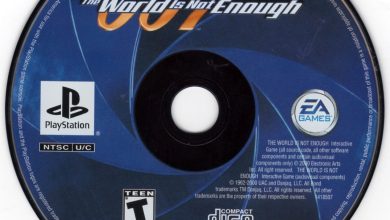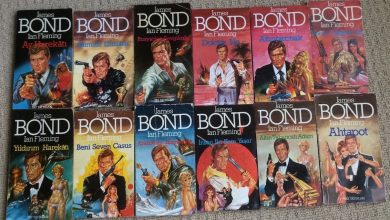Which Bond Movies Are Not Based on Ian Fleming Books? Unveiling the Non-Fleming Bond Adventures

The James Bond franchise has captivated audiences for decades with its iconic British spy character, Agent 007. While many of the Bond movies are based on Ian Fleming’s novels, there are several films that venture into original storytelling territory. In this article, we will explore the non-Fleming Bond movies, delving into their origins, impact, and how they contribute to the overall Bond universe. From space adventures to reimagined narratives, these films have played a vital role in keeping the franchise fresh and captivating.
Key Takeaways
- Not all Bond movies are based on Ian Fleming’s books. Several films in the franchise chart their own course and feature original stories.
- The non-Fleming Bond movies have contributed to the franchise’s evolution, allowing it to adapt to changing cinematic trends and appeal to a wider audience.
- These films have maintained the core essence of James Bond while exploring new territories and providing fresh perspectives on the character.
- While some non-Fleming movies incorporate nods and references to Fleming’s works, they exist within a loose continuity that allows for narrative flexibility.
Non-Fleming Bond Movies
While Ian Fleming penned a total of fourteen Bond novels, not every film in the series draws inspiration directly from his works. Let’s delve into the Bond movies that charted their own course:
1. “Moonraker” (1979)
“Moonraker” takes its name from Fleming’s 1955 novel, but the film’s plot bears little resemblance to its literary counterpart. In the novel, Bond investigates the theft of a Moonraker missile, while the film sends him into space to foil a villain’s plot to destroy humanity. The movie took advantage of the popular space-themed genre of the time, showcasing Bond’s ability to adapt to changing cinematic trends.
2. “Licence to Kill” (1989)
In “Licence to Kill,” Bond seeks revenge after his close friend Felix Leiter is brutally attacked. The film diverges from Fleming’s books by delving into a more personal storyline for Bond. While elements from various novels influenced the movie’s plot, it is not directly based on any specific Fleming work.
3. “GoldenEye” (1995) and Beyond
Following a six-year hiatus, “GoldenEye” marked the debut of Pierce Brosnan as James Bond. This film, along with subsequent installments, including “Tomorrow Never Dies” (1997), “The World Is Not Enough” (1999), and “Die Another Day” (2002), introduced original storylines specifically written for the screen. While these movies featured familiar Bond tropes, they were not derived from any of Ian Fleming’s novels.
4. “Casino Royale” (2006) and “Quantum of Solace” (2008)
Casino Royale” represented a reboot of the franchise, introducing Daniel Craig as a more grounded and gritty Bond. This film serves as an adaptation of Fleming’s first novel, but it also incorporates significant deviations from the source material. Similarly, “Quantum of Solace” borrows its title from one of Fleming’s short stories but offers a fresh narrative that expands beyond the original tale.
5. “Skyfall” (2012) and “Spectre” (2015)
Both “Skyfall” and “Spectre” feature original storylines while incorporating elements and references from Ian Fleming’s works. These movies provide a modern twist to the Bond mythology, delving into the character’s past and exploring the consequences of his actions.
FAQ: Frequently Asked Questions about Non-Fleming Bond Movies
1. What motivated the Bond filmmakers to deviate from Ian Fleming’s books and create original stories for some movies?
The decision to depart from Ian Fleming’s books and craft original stories for certain Bond movies stemmed from various factors. One key reason was the desire to keep the franchise fresh and relevant to changing cinematic trends and audience expectations. By introducing original narratives, the filmmakers could explore new territories, embrace contemporary themes, and capitalize on emerging genres like space adventures, as seen in “Moonraker.” This approach allowed Bond to evolve beyond the confines of Fleming’s novels and cater to a wider audience.
2. Were the non-Fleming Bond movies well-received by fans and critics?
The reception of the non-Fleming Bond movies varied among fans and critics. Some films, like “GoldenEye,” received positive acclaim for their engaging stories, impressive action sequences, and the introduction of new actors portraying Bond. Others faced mixed reviews, as fans had different expectations for the character based on their familiarity with Fleming’s novels. However, it is worth noting that the Bond franchise has always been known for its ability to reinvent itself, and these non-Fleming movies played a crucial role in keeping the series relevant and appealing to broader audiences.
3. Do the non-Fleming Bond movies maintain the essence and character of James Bond?
While the non-Fleming Bond movies introduced original stories, they still aimed to preserve the core essence and character of James Bond. These films continued to portray Bond as a suave, resourceful, and skilled secret agent, capable of saving the day and seducing the ladies. However, the reinterpretation of the character, as seen in the Daniel Craig era with films like “Casino Royale” and “Quantum of Solace,” aimed to provide a more realistic and emotionally driven portrayal of Bond, emphasizing his vulnerability and internal conflicts. Ultimately, the non-Fleming Bond movies sought to balance the familiar elements of the franchise with innovative storytelling approaches.
4. Are there any nods or references to Ian Fleming’s works in the non-Fleming Bond movies?
Yes, several non-Fleming Bond movies incorporated nods and references to Ian Fleming’s works. For instance, “Skyfall” explores Bond’s childhood home in Scotland, a location that has significance in Fleming’s novels. The films also occasionally include references to iconic characters from the books, such as Q, M, and Miss Moneypenny. While the non-Fleming movies aimed to carve their own path, they acknowledged the franchise’s literary origins by incorporating subtle or overt connections to Fleming’s universe.
5. Did the non-Fleming Bond movies affect the overall continuity of the franchise?
The non-Fleming Bond movies did not disrupt the overall continuity of the franchise. While some films presented original storylines, they still fit within the broader Bond mythology established by Fleming’s novels and the previous films. The series employed a loose continuity that allowed for narrative flexibility, enabling filmmakers to explore diverse storylines and interpretations of the character. However, certain key elements and recurring characters, such as Bond’s background, the secret service, and the iconic gadgets, remained consistent across both Fleming and non-Fleming movies, maintaining the overarching Bond universe.
6. Can the non-Fleming Bond movies be enjoyed without prior knowledge of Ian Fleming’s books?
Absolutely! The non-Fleming Bond movies are designed to be enjoyed by both fans of the novels and newcomers to the franchise. While familiarity with Fleming’s books may provide additional context and references, it is not a prerequisite for understanding or enjoying the non-Fleming films. Each movie presents its own self-contained story, featuring James Bond in action-packed adventures that can be appreciated independently, regardless of prior knowledge of the literary source material.
7. How did the non-Fleming Bond movies contribute to the evolution of the franchise?
The non-Fleming Bond movies played a significant role in the evolution of the franchise. They allowed the series to adapt to changing times, incorporating contemporary storytelling techniques, and reflecting the cultural shifts of their respective eras. These films introduced new actors in the role of Bond, such as Pierce Brosnan and Daniel Craig, and brought fresh perspectives to the character, appealing to both existing fans and attracting a new generation of Bond enthusiasts. By exploring original narratives, the non-Fleming movies revitalized the franchise and ensured its continued relevance in the ever-evolving landscape of cinema.
8. How did the non-Fleming Bond movies impact the box office success of the franchise?
The non-Fleming Bond movies made a significant impact on the box office success of the franchise. Despite some variations in critical reception, these films consistently attracted large audiences, demonstrating the enduring popularity of the James Bond character. Movies like “GoldenEye” and “Skyfall” achieved substantial commercial success, becoming some of the highest-grossing entries in the entire series. The ability to venture beyond Fleming’s novels and introduce fresh storylines helped to maintain the franchise’s financial viability and global appeal.
9. Are there any plans to create more non-Fleming Bond movies in the future?
As of my knowledge cutoff in September 2021, there were no official announcements regarding future non-Fleming Bond movies. However, the Bond franchise has a history of adaptability and innovation, continuously exploring new directions to keep the character and stories relevant. It is plausible that future Bond films may feature original narratives alongside adaptations of Fleming’s works, ensuring a balance between honoring the character’s literary roots and pushing the boundaries of cinematic storytelling.
10. Can the non-Fleming Bond movies be considered as standalone films, or is it necessary to watch the entire Bond series to understand them?
The non-Fleming Bond movies can be enjoyed as standalone films without the need to watch the entire Bond series. While there are recurring characters and references to previous films, each movie provides enough context and exposition to allow viewers to follow the story independently. However, watching the entire Bond series can enhance the overall experience by providing a deeper understanding of the character’s evolution and the franchise’s rich history. Whether enjoyed individually or as part of a marathon viewing, the non-Fleming Bond movies offer thrilling and entertaining adventures that can be appreciated on their own merits.
Conclusion
The non-Fleming Bond movies have added an extra layer of excitement and creativity to the enduring franchise. From the space-themed adventure of “Moonraker” to the gritty reboot of “Casino Royale,” these films have expanded the Bond universe, captivating audiences with their action-packed stories and memorable characters. While they deviate from the original source material, the non-Fleming movies have successfully maintained the essence of James Bond, showcasing his adaptability and enduring appeal. As the franchise continues to evolve, we can look forward to future Bond films that strike a balance between honoring the character’s literary origins and pushing the boundaries of cinematic storytelling.
In conclusion, the non-Fleming Bond movies have proven to be a dynamic and vital component of the James Bond franchise, contributing to its longevity and cultural impact. These films have demonstrated that while Ian Fleming’s novels provided an excellent foundation, there is ample room for originality and creative exploration. As fans eagerly await the next Bond adventure, we can appreciate the diverse range of stories that have been brought to life outside the pages of Fleming’s books. Whether it’s soaring through space or delving into the complex psyche of 007, the non-Fleming Bond movies have left an indelible mark on the cinematic landscape, ensuring that the world’s most famous secret agent continues to captivate audiences for years to come.









3 Comments